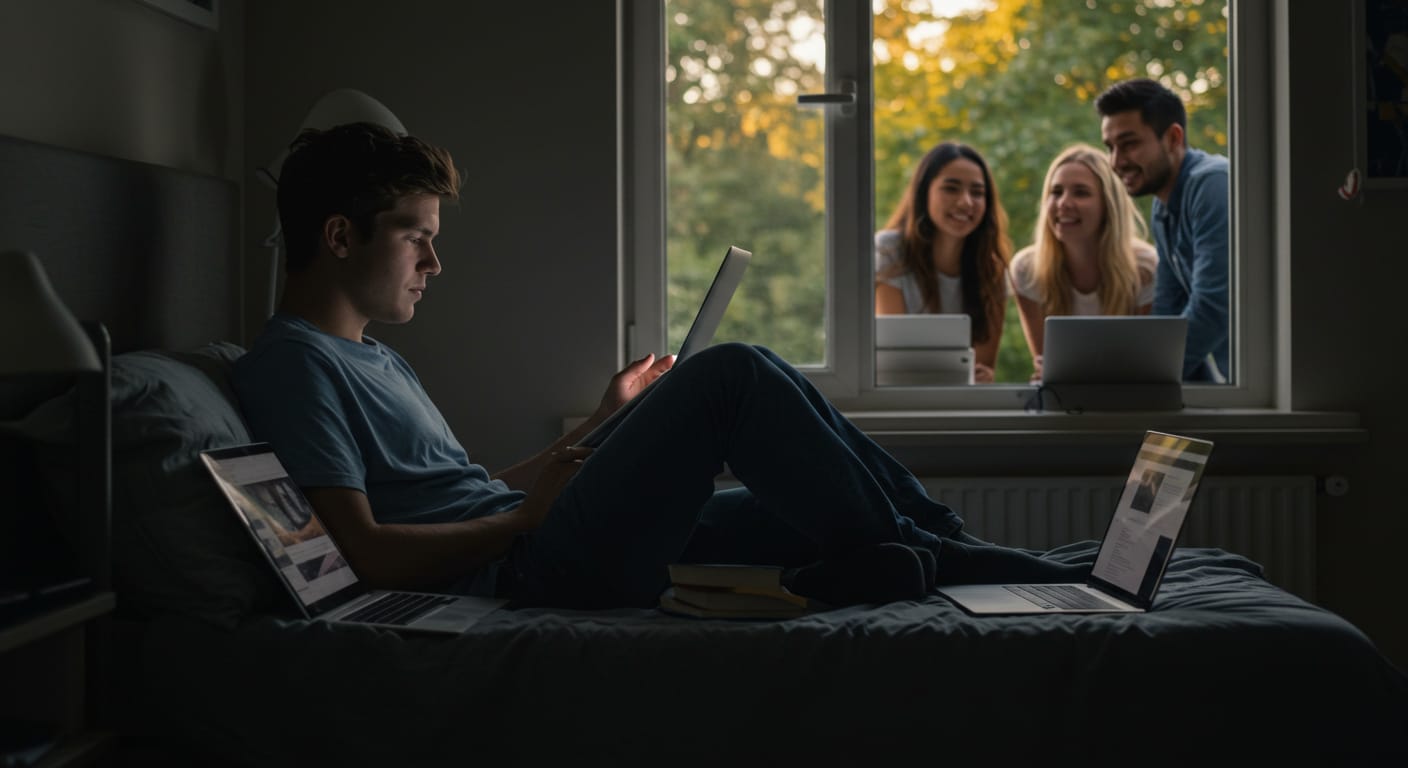Student Online: A Growing Concern
The digital world has rapidly transformed how students interact, learn, and live. College students today spend a significant portion of their time immersed in technology—scrolling through Facebook, Snapchat, Instagram, and countless other platforms. Online dating, endless selfies, and digital admiration have become the norm.
Now, with the rise of online schooling, the situation has taken an even sharper turn. Students are spending more time in virtual classrooms and less time engaging in meaningful, face-to-face interaction.
A False Sense of Connection
At first glance, technology appears to bring us closer. With just a tap, a student can chat with someone halfway across the globe—something that would have taken days or weeks in the past. But despite this instant connectivity, students are increasingly isolated.
We might be “talking” to hundreds of people a day through screens, but deep, fulfilling human connection is fading—and depression is on the rise.
The Disappearing Social Skills
Humans are naturally social creatures. We’re wired for connection—our brains literally dedicate entire sections to language and interpersonal communication. When that’s underused, as it is with excessive screen time, our mental health suffers.
For students who learn online, it’s even more difficult. They can go entire days without a meaningful in-person interaction. In the social media age, the line between genuine connection and digital interaction has blurred. Many students don’t even realize they’re lonely.
The Effects of a Virtual Life
There’s a growing tug-of-war between real life and virtual life. Studies show that too much screen time can lead to:
-
Depression
-
Anxiety
-
Sleep disturbances
-
Increased stress
-
A decline in real-world social skills
And it becomes a vicious cycle. The more anxious and depressed a young adult feels, the more time they might spend online—which in turn, intensifies feelings of loneliness and worthlessness.
The Need for Balance
This doesn’t mean smartphones or technology are bad. They serve many purposes, especially for introverted students who may find socializing difficult. But balance is critical. A few trusted friends, quality time with family, and in-person support systems can go a long way toward lifting the weight of loneliness and improving emotional well-being.
New Avenues for Support
Interestingly, mental health professionals are now offering digital therapy options, which can help students who are more comfortable online. These virtual services provide a private and familiar setting to:
-
Discuss emotions
-
Receive therapy
-
Get guided support
-
Develop coping strategies
Still, face-to-face counseling remains one of the most effective forms of treatment. It fosters a deeper connection and often allows for better emotional breakthroughs.
A Message to Parents and Educators
If your student spends hours online but still seems sad, irritable, withdrawn, or unmotivated, don’t dismiss it as “just part of growing up.” Encourage:
-
Putting down the phone regularly
-
Spending time in nature or with friends
-
Joining clubs or campus activities
-
Real-world conversation over constant texting
We often forget to live in the moment, to share a laugh across the table, or to just sit in silence with someone who cares. And yet, those small moments build lasting emotional resilience.
Final Thought
The digital world isn’t going anywhere—but neither is the basic human need for connection. As students navigate life online, they must also learn to nurture the emotional, face-to-face connections that build confidence, resilience, and happiness.
Even just one genuine interaction a day can make all the difference.



Useful information,thanks for sharing